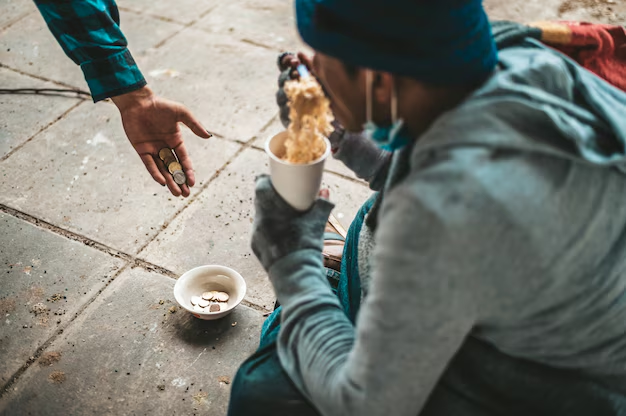Your Guide to Charlotte Homeless Shelter
What You Get:
Free Guide
Free, helpful information about Shelter FAQ and related Charlotte Homeless Shelter topics.
Helpful Information
Get clear and easy-to-understand details about Charlotte Homeless Shelter topics and resources.
Personalized Offers
Answer a few optional questions to receive offers or information related to Shelter FAQ. The survey is optional and not required to access your free guide.
Finding Support at Charlotte's Homeless Shelters: Your Guide to Assistance
When life becomes unpredictable and homelessness becomes a reality, finding immediate shelter can be a daunting task. In Charlotte, several resources are dedicated to assisting those in need of a safe place to stay. Understanding the options available at Charlotte homeless shelters can be the first step in reclaiming stability and hope.
The Role of Charlotte Homeless Shelters
Homeless shelters in Charlotte provide vital services beyond just a roof over your head. These shelters often offer a comprehensive range of support services, including meals, health care, job training, and counseling. By creating a supportive environment, homeless shelters aim to assist individuals and families not only to survive but to eventually thrive and reintegrate into stable living situations.
Major Shelters in Charlotte
There are numerous shelters in Charlotte, catering to different needs, from emergency housing to transitional accommodations. Some key players include:
- The Salvation Army Center of Hope: Serving women and children, offering emergency housing and transitional programs.
- The Roof Above (formerly Men’s Shelter of Charlotte): Specializes in helping men with emergency shelter and transition programs.
- The Relatives: Focused on youth in crisis, providing shelter alongside education and family support services.
How Can Homeless Shelters Help Improve Your Financial Situation?
A critical component of the support offered by Charlotte's shelters is access to programs that address financial instability. These programs strive to tackle the root causes of homelessness.
Here’s how you can benefit:
Access to Government Aid Programs: Shelters often have connections to assist individuals in applying for local, state, and federal assistance programs such as food stamps, rental assistance, and health care subsidies.
Financial Coaching and Debt Relief: Many shelters offer classes and one-on-one sessions with financial advisors who can help you develop a budget, understand debt relief options, and suggest strategies to rebuild credit.
Employment and Educational Opportunities: Some shelters provide training programs or partner with local colleges, offering opportunities for educational grants and scholarships. These initiatives empower you with new skills that can lead to sustainable employment.
Pathways to Self-Sufficiency
Engaging with the services offered by Charlotte homeless shelters is an effective first step towards self-sufficiency. Embracing these opportunities often reveals additional resources that can help unshackle economic burdens.
Consider exploring these pathways:
- Credit Card Solutions: Some professionals help you consolidate credit card debt or find zero-interest introductory cards to manage existing obligations.
- Vocational Training and Scholarships: Many shelters work with organizations offering scholarships and vocational training to improve job prospects, fostering long-term success.
Key Resources to Explore
Transforming a challenging situation into a story of resilience involves utilizing every available resource. Here’s a handy checklist of options you might explore:
- 🏠 Emergency Housing Assistance
- 📚 Educational Grants & Scholarships
- 🏢 Job Training Programs
- 💳 Debt Relief & Credit Solutions
- 🤝 Government Aid Programs
By beginning with the supportive arms of shelters in Charlotte, you can unlock doors to a range of opportunities that will lead to a more secure, financially independent future. While the road to recovery is never easy, it is certainly navigable—with guidance, resources, and a plan tailored to your circumstances.
What You Get:
Free Shelter FAQ Guide
Free, helpful information about Charlotte Homeless Shelter and related resources.

Helpful Information
Get clear, easy-to-understand details about Charlotte Homeless Shelter topics.

Optional Personalized Offers
Answer a few optional questions to see offers or information related to Shelter FAQ. Participation is not required to get your free guide.


